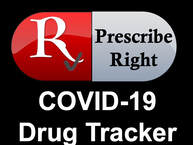|
COVID-19 Vaccines
The CDC conducted a retrospective review of data from 40,627 pregnant women and found that COVID-19 vaccination during pregnancy did not increase the risk of preterm birth or small-for-gestational-age at birth overall, stratified by trimester of vaccination, or number of vaccine doses received during pregnancy, compared with unvaccinated pregnant women. A CDC retrospective analysis of 1,228,664 patients who completed the two-dose primary vaccination from December 2020–October 2021, found the incidence of developing severe COVID-19 was 0.015%. All patients who developed severe COVID-19 had at least one risk factor for developing a severe infection. A week after restating the six-month interval for a booster with the Moderna COVID-19 vaccine, the FDA shortened time period to five-months to match the recommendation for the Pfizer-BioNTech vaccine. In a French case series of 92 kidney-transplant patients, a fourth dose of an mRNA vaccine produced a satisfactory antibody response in about half of the patients who had not responded to three doses. Antibody levels were measured a median of 29-days after the dose. In October the CDC recommended an additional booster dose, given six-months after the first booster dose, in moderately and severely immunocompromised patients. COVID-19 Antibodies NIH recommends AstraZeneca’s monoclonal antibody combination of tixagevimab and cilgavimab for COVID-19 prophylaxis in patients who are moderately to severely immunocompromised with an inadequate immune response to COVID-19 vaccination or not fully vaccinated due to a documented history of severe adverse reactions to a COVID-19 vaccine Comments are closed.
|
Stay informed, subscribe to the Prescribe Right Pharmaceutical Pipeline Tracker
Archives
January 2023
Categories |
Services |
Company |
Support |
© COPYRIGHT 2015. ALL RIGHTS RESERVED.
|


 RSS Feed
RSS Feed